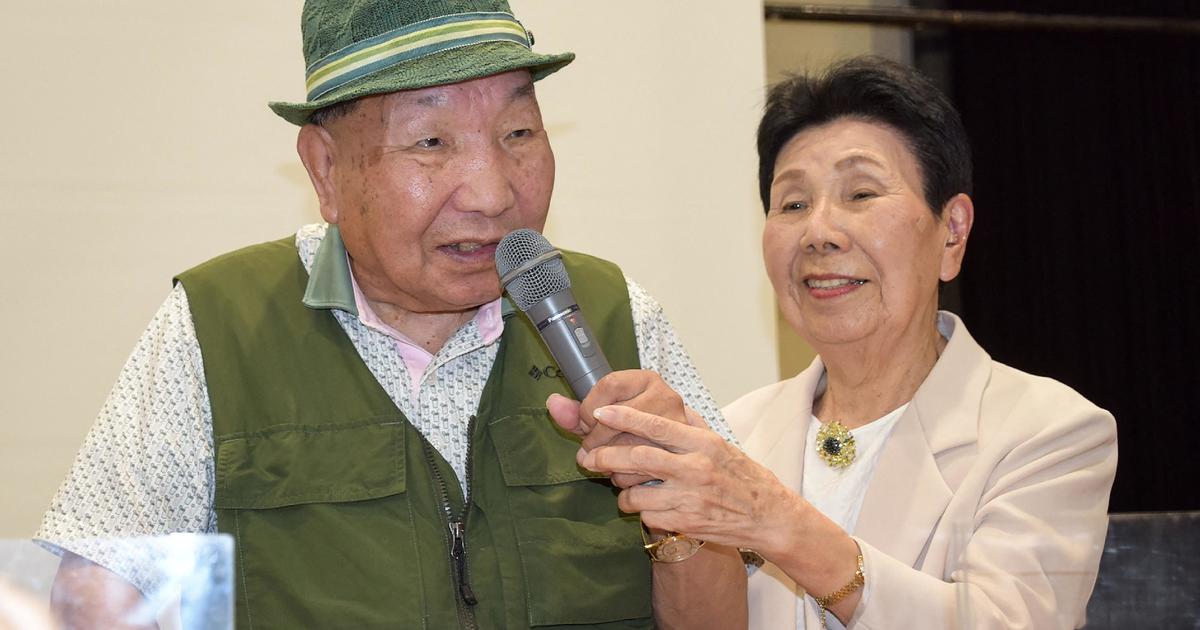Iwao Hakamada, an 88-year-old Japanese man, spent 46 years on death row for a quadruple murder he did not commit. His case highlights the devastating consequences of wrongful convictions and the persistent challenges in achieving justice within a system susceptible to errors and potential misconduct. After a decades-long fight spearheaded by his dedicated sister, Hideko, a Japanese court finally overturned his conviction, delivering a landmark victory and underscoring the crucial importance of continued efforts to reform judicial systems and ensure fair treatment for all individuals accused of crimes. This case is a powerful testament to the resilience of the human spirit and the unwavering pursuit of justice in the face of overwhelming adversity. The ramifications of this decision extend beyond Hakamada’s individual case, potentially impacting future cases and raising critical questions about the Japanese justice system.
The Hakamada Case: 46 Years on Death Row
Wrongful Conviction and the Fight for Freedom
Iwao Hakamada’s journey began in 1968 when he was arrested and convicted of the murders of his boss, his boss’s wife, and their two children. His confession, obtained through what the court later deemed “inhumane” interrogation techniques involving mental and physical torture, became a central piece of evidence in his conviction. For nearly five decades, he endured the immense psychological and emotional toll of solitary confinement, constantly facing the imminent threat of execution. His sister, Hideko, tirelessly campaigned for his release and retrial, providing unwavering support and tirelessly fighting to bring to light the flaws in the original investigation. Her dedication was instrumental in eventually securing the overturning of his conviction. This dedication stands as a powerful example of perseverance and familial commitment in the face of overwhelming odds. It also highlighted crucial systemic failures, revealing potential avenues for reform in the Japanese judicial process.
The Overruled Conviction and its Implications
After a long and arduous legal battle, the Shizuoka District Court declared Hakamada innocent. The court delivered a scathing critique of the original prosecution, highlighting the fabrication of key evidence. Specifically, the court found that blood-stained clothing presented as evidence had been planted by investigators—a blatant miscarriage of justice. The court deemed Hakamada’s confession invalid due to the coercive nature of his interrogation, effectively dismantling the prosecution’s central arguments. This ruling not only freed Hakamada but also cast a harsh light on potential misconduct within the Japanese judicial system, raising concerns about investigative practices and the reliability of confessions obtained through questionable methods. This decision sets a powerful precedent for future cases challenging convictions based on potentially fabricated evidence or coerced confessions.
The Aftermath and Future Legal Battles
Financial Compensation and Potential Further Legal Action
Hakamada’s acquittal paves the way for significant financial compensation, estimated to exceed $1.4 million. However, his legal team is considering launching a new lawsuit against the state to seek further compensation for the decades of wrongful imprisonment and the immense suffering he endured. The extensive nature of the court’s criticism of police and prosecutorial conduct provides a strong foundation for such a claim, potentially setting a precedent for future cases of wrongful conviction in Japan. This underscores the deep systemic issues that need to be addressed beyond a single exoneration. It calls for broader reform and accountability for those involved in the original investigation and prosecution.
The Ongoing Debate about the Death Penalty in Japan
Hakamada’s case reignites the debate surrounding the death penalty in Japan. While Japan hasn’t carried out executions since July 2022, the case emphasizes the immense risk of executing innocent individuals. Hakamada’s case stands as a chilling reminder of the potential for irreversible injustice within a system employing capital punishment. This case, coupled with other recent exonerations of individuals once sentenced to death, prompts a serious reconsideration of Japan’s reliance on this controversial practice and calls for further measures to safeguard against wrongful convictions, particularly within a judicial system utilizing the death penalty. The international spotlight brought by this case places significant pressure for changes in laws and protocols concerning the treatment of death row inmates and the appeals processes related to death sentences.
Takeaway Points
- Iwao Hakamada’s exoneration after 46 years on death row is a monumental victory highlighting systemic issues in the Japanese justice system.
- The case exposes the potential for wrongful convictions based on fabricated evidence and coerced confessions.
- The court’s condemnation of prosecutorial misconduct demands systemic reform to prevent future injustices.
- Hakamada’s case reignites the debate surrounding the death penalty in Japan and its inherent risk of executing innocent people.
- His case serves as a stark reminder of the importance of due process, the protection of fundamental rights, and the relentless pursuit of justice.









